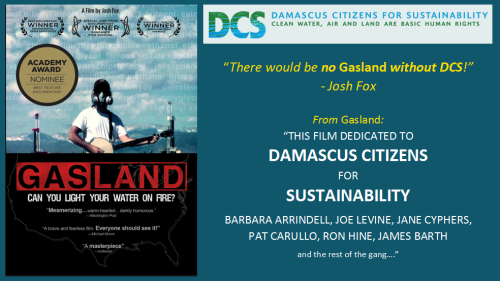Get Poor Slow
February 4, 2008Startup Cracks Propane Fracture Puzzle, Provides 'Green' Solution
September 15, 2008TEDX to NYC Council: "The western experience should be taken seriously by those in the East"
To: Council member James Gennaro
Re: Oversight Hearing – Natural Gas Drilling in the New York City Drinking Watershed
From: Theo Colborn, PhD
In response to your letter of August 27, 2008 in which you invited me to attend and testify during a hearing on Natural Gas Drilling in the New York City Watershed, I regret that I will not be able to attend. Instead I am submitting pertinent data that the Committee on Environmental Protection should be aware of concerning chemicals that are used during natural gas operations.
I was born and raised in northern New Jersey and for 15 years prior to moving to Colorado in 1964, I lived in Sussex County. I am very familiar with New York City’s watershed and the headwaters of the Delaware River. My curriculum vitae is attached for your review. (Attachment
A.) I am certain that you have been told by natural gas developers that they “know how to do it right” and they will pose no threat to what is possibly the most precious asset New York City and the State of New York possess, your watersheds. I also know that you are being told that gas production in the East is, and will be, different than what has taken place in the West and therefore what has happened in the West has no relevance to gas development in the East. I disagree.
Keep in mind that as natural gas activity in the West began to spread beyond the vast expanses of relatively uninhabited BLM land, it encroached upon our watersheds, our municipalities, our homes, and most unexpectedly, began to impact the quality of our air-sheds. The western experience should be taken seriously by those in the East. Many western communities and counties were not prepared for the impacts, as the US EPA’s authority and oversight rapidly
disappeared and gas rigs started to move into their neighborhoods. What has happened here is just a prelude to what can happen in the more heavily populated New York City watershed.
It is not too late for New York City to start addressing the human and environmental health impacts that suddenly surface when drilling commences near residences and in municipal watersheds. And most important early on, the council must take into consideration the disturbing evidence from the West about the local and long-range increases in ozone as natural gas activity increases, and what that will mean in terms of New York City meeting EPA ozone compliance levels. To assist your Committee in its determinations, TEDX is providing the following commentary and documents for your docket that my staff and I have produced over the past six years while natural gas production boomed in the western half of Colorado.
I encourage New York City to err on the side of caution and to seriously consider the number and volumes of toxic chemicals that are going to be introduced into the Marcellus Shale Natural Gas Field as natural gas operations commence. You are in a position to establish precedent for municipalities, counties, and states across the nation in your deliberations this week.
As the attachments will make clear, full disclosure must be instituted or lives will be lost due to lack of exposure information for emergency medical responders, which is necessary to protect and treat workers and citizens. Your watershed and many household drinking water wells could be lost. Water treatment plants are not designed to deal with chemicals of this nature. Water quality monitoring will be useless if testing is not designed to detect the chemicals that are in use.
In the West, where states are beginning to anticipate the closure of wells, we are just beginning to hit the tip of the iceberg for what we have done. To date, there is no clear explanation as to how so many of the chemicals now being reported in the reserve pits got there. What little information is available concerning pit contents is still more than sufficient to be a cause for concern. In my New Mexico testimony, when asked by the Hearing officer about the chemicals found in the pits about to be closed, I had to admit that if the pattern of chemical pollutants found in pits continues to be the same across the country as more pits are tested prior to closure, it would appear that every well pad will eventually become a superfund site. New Mexico is faced with this dilemma today in its southeastern and northwestern oil fields and it looks like the tax payers are responsible for the bill.
It is extremely important that both New York City and New York State require full disclosure of the chemicals that are being shipped into and/or being used in its watersheds. Preventive measures must be taken to provide full protection of watersheds and public health. This can only be accomplished through full disclosure of all the chemicals in all the products being used, and full disclosure of where and how much of each chemical is used in each operation, and how the residuals will be disposed of.
The mismatch between what can be eked out about the chemicals that are being introduced into the gas fields and what is turning up in the environment around well pads emphasizes the need for full disclosure of all products and chemicals to be used prior to operations commencing.
Thank you for your consideration. Do not hesitate to call me if you have questions or need more information.
Yours truly,
Theo Colborn, PhD
President



